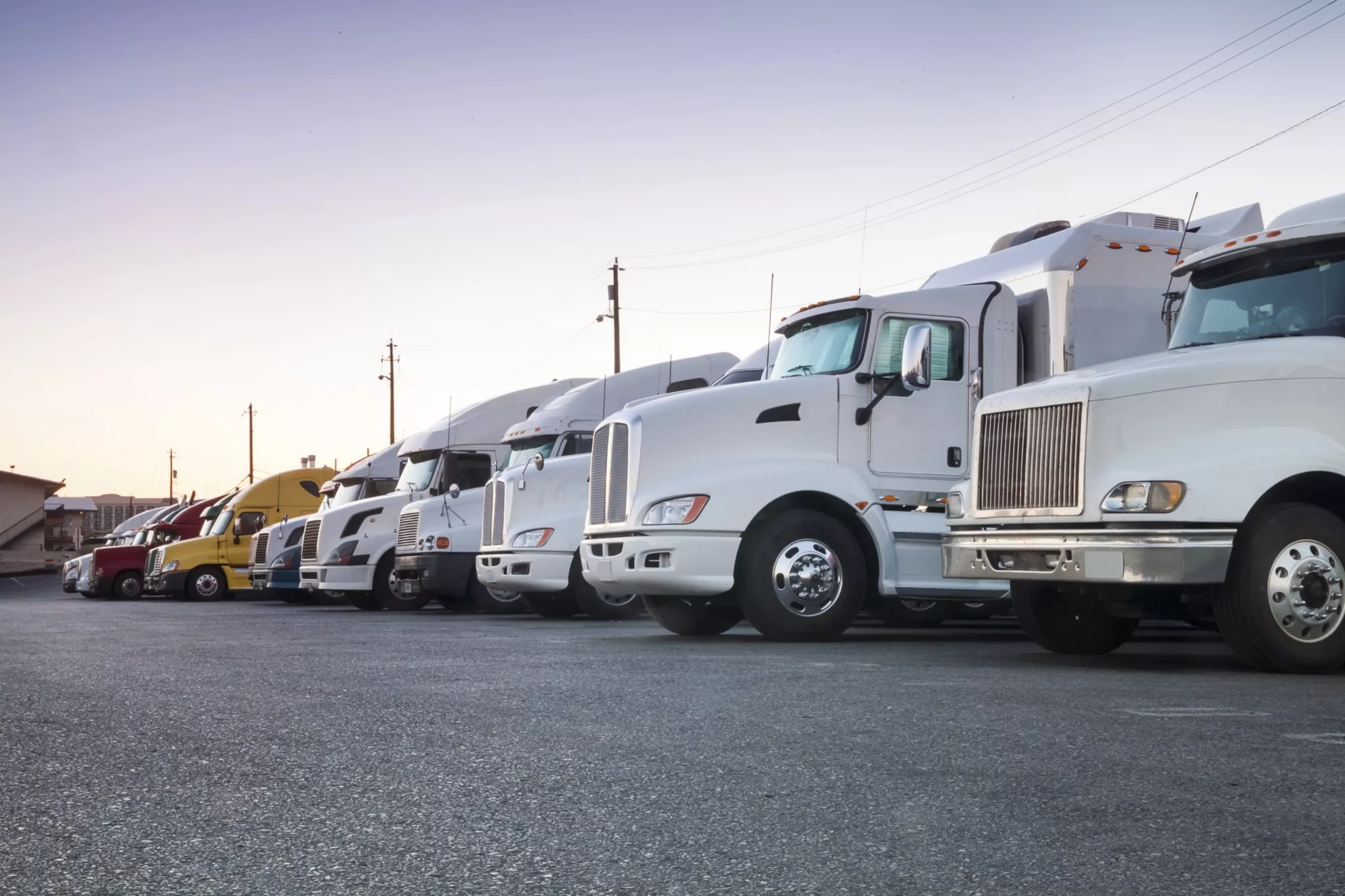If you are hooked by the name of this article, chances are that you are either seriously considering starting your own trucking business or at least fascinated by its prospect. The good news is you are in the right place at the right time because today we are going to discuss the vital factor of a successful trucking business. As with any other outset in life, it is crucial to have a step-by-step action plan to be guided by. No matter what stage of business foundation you are at right now, learning about the nuts and bolts of a business plan for a trucking company is equally important to every future carrier.
Below, we will cover the following aspects of the topic: the definition of a trucking business plan, the reasons why it should be treated seriously, its main components, and the practical steps of crafting the plan. If owning a freight forwarding enterprise is still a dream for you, we aim to introduce you to the industry landscape and its features. It will help you decide whether you want to direct your life that way and think of your next moves. In case you’ve already made up your mind to start providing transportation services, this brief guide may become the springboard for making your dream come true!

What Is A Trucking Business Plan?
A trucking business plan is a written outline of the way you are going to establish, promote, operate, and develop your company. It is a multilayered document that includes various aspects of the trade — starting from ‘hardware’ such as your initial assets, vehicles, equipment, and workforce, continuing with the legislative and financial realms, your competitive edge, and eventually, it encompasses the ‘software’ elements like a set of corporate values, purposes, and the company’s mission statement. The ultimate goal of a trucking business plan is to ensure that your activity will turn out feasible and lucrative.
Before you start sketching your plan, remember that the key principle is to skillfully balance high ideals with the down-to-earth peculiarities of the industry. The freight market is quite a crowded, fast-paced place that may put a newcomer under strain. Nevertheless, a passion for trucking combined with a thorough business plan will surely pay off sooner or later. Having a substantial strategy will not only show you the right way but also accelerate your growth as a professional. If you want to become a significant player, you should never neglect the importance of planning things beforehand. Let’s see why writing a trucking business plan is so indispensable.
The Importance of Business Plan for Trucking
A trucking business plan serves numerous purposes. The most obvious one is being a literal instruction that shows you what tasks to perform. Usually, once one launches a trucking company, they have to accomplish a list of necessary assignments before they can proceed with actual business activities. It is very convenient to have a list of tasks of the utmost importance in front of you. No one wants to find out that there is some mismatch in their business registration right after the business starts gaining momentum, right? The plan is a great assistant for keeping things in order, scheduling your working routine effectively, and just staying motivated.
Wise business management is another essential factor that you need a trucking company business plan for. Before starting a trucking company, you will want to estimate your current assets and compare them to the necessary investments. If any supplement funding is needed, it should also be noted in the plan. Once you evaluate your capital, you will want to analyze the market conditions and therefore calculate your approximate income.
- Operational Guidance
A trucking business plan acts as a literal instruction manual, showing you the necessary steps and tasks to perform as you set up your business. When launching a trucking company, there is a series of essential assignments that must be completed before actual operations can begin. Having a detailed list of these tasks in front of you ensures nothing is missed, preventing costly delays or errors. - Avoiding Legal and Regulatory Pitfalls
The trucking industry is highly regulated, and ensuring that all aspects of your business, from registration to compliance, are in order is crucial. A trucking business plan helps you stay on top of these requirements, avoiding the risk of discovering a compliance issue only after your business starts gaining momentum. - Task Prioritization and Organization
A successful trucking business plan helps you prioritize tasks based on importance, making it easier to manage your workflow and daily operations. This level of organization ensures you stay efficient and productive, minimizing the chances of overlooking critical steps. - Effective Scheduling
With a clear plan in place, you can effectively schedule your work routines, set realistic deadlines, and allocate resources accordingly. This helps you maintain a consistent work pace and ensures that you hit all your operational milestones. - Motivation and Focus
Having a detailed trucking company business plan serves as a reminder of your goals and aspirations. It keeps you motivated, helping you stay focused on the big picture while managing the day-to-day activities. A clear plan gives you a sense of direction, especially during challenging times. - Financial Management
Wise financial and business management is another critical reason to develop a trucking business plan. Before starting your trucking company, you’ll need to assess your current assets and determine how they align with the necessary startup investments. A trucking business plan helps you map out this financial landscape, highlighting where you may need supplemental funding. - Attracting Investment
If your business requires external funding, whether through loans or investors, a detailed business plan is a must. It demonstrates to potential investors that you have a well-thought-out strategy and are serious about your business’s future. A strong plan improves your chances of securing the capital you need to grow. - Financial Statements and Market Analysis
A trucking business plan allows you to evaluate market conditions and estimate your potential income. By analyzing trucking industry trends and competition, you can set realistic revenue goals and make informed decisions about pricing strategy and transportation services you pla to provide. - Risk Management
Every business comes with risks, and a comprehensive business plan helps you identify and mitigate them. Whether it’s rising fuel costs, driver shortages, or regulatory changes, having a plan in place allows you to anticipate challenges and adapt accordingly.
Components of a Trucking Business Plan
Developing trucking business plans is a crucial step toward building a successful and sustainable business. A comprehensive trucking business plan not only serves as a daily operations plan but also as a strategic guide for long-term growth. It outlines your goals, business structure, financial strategies, and market positioning, helping you stay on course as you navigate the complexities of the trucking industry. In this section, we’ll walk you through the essential components of a successful trucking company business plan, such as executive summary, competitive analysis, financial plan, and planned trucking and logistics services. These components ensure that you have a solid framework to achieve your vision and meet your business objectives.
- Executive summary. It is a brief yet informative intro meant to keep readers’ attention. It provides an overview of your motivation for starting a trucking business and outlines the key aspects of your business model. This section is critical for making a strong first impression, as it can influence potential investors, partners, and clients to take a deeper interest in your venture. The more compelling and clear your executive summary is, the more likely it is to stand out.
- Company description. In this section, you should narrow down to the specific features of your trucking company. You will want to include the commodity type you will chiefly haul, the areas and states you are planning to cover, and who your target customers are. The description should not necessarily be extended, but it should demonstrate that you have a definite vision of your future actions.
- Operation plan. Your operations plan outlines the logistics of how your business will function on a day-to-day basis. Here, you’ll include details such as where your own trucking company headquarters will be located, how many trucks and drivers you’ll initially have, and who will handle dispatching. It’s important to also describe your supply chain, including which load boards you’ll use to find jobs, how you’ll handle maintenance and vehicle repairs, and your plans for fuel management. Additionally, provide details on how you’ll manage administrative tasks, such as accounting, invoicing, and compliance with transportation industry regulations.
- Industry analysis and marketing plan. In this paragraph, you need to demonstrate your knowledge about the niche you are planning to work in. Input your competitor analysis, present ideas for gaining recognition in the market, and define a competitive advantage of your operations. It is crucial to include your main methods of advertising and expected marketing costs. Besides, think of ways of retaining customers’ trust aside from just gaining it.
- Services and pricing. Clearly describe the trucking services your business will offer. Will your trucking company specialize in local deliveries, long-haul trucking, or a specific type of freight transportation? The more precise you are, the easier it will be for potential clients and partners to understand how you fit into the market. Along with detailing your trucking services, you’ll need to outline your pricing structure.
- Management team. This section highlights the experience and qualifications of your management team and key personnel. For small trucking companies, this might focus on your own expertise and any partners or advisors you have. For larger trucking operations, describe the leadership roles within the company, including your plans for hiring drivers, dispatchers, administrative staff, and mechanics.
- Financial projections. Include your projected income and expenses, starting with initial startup costs such as truck purchases, insurance, and marketing costs. Estimate your ongoing costs, like fuel, maintenance, driver wages, and regulatory fees. Then, outline your expected revenue based on the number of trips you plan to complete, projected freight rates, and any other sources of income.
10 Steps to Create a Trucking Business Plan
Now’s the time to review the universal steps to create an own business plan. Developing a well-developed plan is vital for setting a solid foundation for your business and guiding its growth. To help you start a trucking company, we’ve compiled a list of 10 key steps that will enable you to develop a complete, reliable, and solid business plan tailored specifically to the trucking industry. Each step is designed to cover various aspects of your business, from market research to financial planning, ensuring you’re well-prepared to navigate challenges and capitalize on opportunities.
Ensure your business is legal
There are concrete federal regulations for trucking businesses in the US. It makes no difference whether you wish to create a large chain business or remain a self-dispatching owner-operator. In each case, it is obligatory to apply for an EIN from the IRS, set up an IFTA account, obtain DOT and MC numbers, file a BOC-3 form and a UCR application, and get insurance.
Choose a name
The importance of the name for any business cannot be underestimated. It identifies and highlights your company among thousands of others. Better if it conveys a meaning and corresponds with the objective of the company, the region of the expedition, or the attitude, ethics, and worldview your team shares. To strengthen the name itself, you can pick a logo that mirrors the credo of your business.
Define the target market
It is important to educate yourself on the current market conditions and communicate with more experienced carriers to decide who you can realistically work with. Will it be large manufacturing companies or maybe new promising enterprises? Also, you need to decide whether you want to run interstate loads or stick to local ones because the procedures of registration, truck drivers’ hours, and profit differ between those. Once you select your target market, it will be much easier for you to structure your marketing strategy according to your goals.
Perform market analysis
Investigate the stories of the most successful carriers in the sphere, and find out what their pros and cons are. Besides, you will want to check on general industry trends and forecasts. Then you can come up with specific qualities and trucking services that will distinguish your business.
Define what staff you need to hire
The choice depends on the size of the trucking company – you can either build a ‘one-man company’ (i.e., be an owner-operator) or hire more drivers to form a small or large fleet company. If you already know whom to hire as truck drivers and dispatchers, point out why these people are competent and what you can offer them for further professional growth. Some truckers assemble their dispatch team by themself, while others choose to cooperate with experienced trucking companies like Logity Dispatch.
Craft a marketing strategy
Depending on the type of trucking company you want to establish, you may choose advertising on industry-related websites, cold calls, mailing lists, social media marketing, or attending offline trade events. Usually, a grand marketing campaign is needed to promote larger trucking companies, but having a skilled dispatcher and maintaining a good reputation will be enough for a small trucking business.
Prepare financial projections
Learning how to calculate cost per mile, and selecting loads according to it is crucial for your profitability. Think of the best ways to manage finances efficiently. Usually, entrepreneurs use a five-year financial plan; however, you may prefer any other method convenient for you. The main thing is to be able to monitor your expenses and revenues so that you don’t make chaotic decisions and keep your finances under control.
Make funding requests
This part is necessary for those who plan to lend money, lease trucks instead of buying them, or use the help of third-party dispatch services or accountants. As with our own budget, it is essential to keep track of all your loans, percentages, employee expenses, and operating costs. This section must include a cash-flow statement, sales strategy and forecast, profit, loss, lease truck payments (in case you rent the trucks), insurance, taxes, and a balance sheet. The ways of attracting investors and partners should be described here as well.
Organize an operational plan
Now you need to consider the most practical aspects of the job — fleet management, hiring process, installing the necessary software and programs, investing in paid subscriptions, and so on. If you are an aspiring business owner or driver seeking professional dispatching help, visit Logity Dispatch. We are a dedicated team with 9 years’ experience in providing top-notch dispatch services, and will not let you down!
Show your readiness to grow and develop
Consider taking special trade courses, watching thematic videos, listening to podcasts, etc. Also, always keep a ‘Plan B’ in reserve so that you know how to establish a successful business.
To wrap everything up, a trucking business plan is the showcase of who you are, especially in the early period of operating. Given that you haven’t gained any reputation yet, you need to apply alternative methods of proving your competitive edge, building customer trust, and attracting investors. If you need additional financial aid to launch your business, then it is even more crucial for you to demonstrate why investors should prioritize your company over the others.
Creating a plan is important not only at the beginning of your freight transportation practice. It also will help you achieve more in the long run because it is the most precise criterion for tracking your personal progress. Once you start noticing drawbacks in your original strategy that hold you back from desirable profit or recognition, the plan may help indicate where the malfunction lies. Then it will be easier to make necessary amends and improve your results.
The last, but not least thing to keep in mind is that a trucking business plan is nothing static. The trucking industry is a purely dynamic phenomenon, that’s why you need to embrace open-mindedness and flexibility to keep yourself afloat. Fortunately, a solid plan will always be there to help you.







